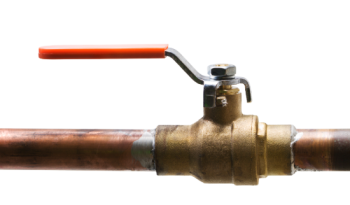January Foreclosure List
  
Abbottsford Detached
Burnaby Detached
Maple Ridge, Pitt Meadows Attached
Port Coquitlam, Coquitlam, Port Moody Detached
Surrey, North Delta, Cloverdale Attached
Abbottsford Attached
Burnaby Attached
Langley Attached
Langley Detached
Maple Ridge, Pitt Meadows Detached
Mission Attached
Mission Detached
North Vancouver West Vancouver Attached
North Vancouver West Vancouver Detached
Richmond Attached
Richmond Detached
Surrey Delta Cloverdale Detached
Tsawwassen, Ladner Attached
Tsawwassen, Ladner Detached
Vancouver East Attached
Vancouver East Detached
Vancouver West Attached
Vancouver West Detached
Westminster Attached
Our January 2025 list of Vancouver Lower Mainland properties listed for sale through the foreclosure process has once again been provided by P.A. "Doc" Livingston, PREC.
Feel free to reach out to "Doc" if you would like more information about these properties and contact me if you would like to know how arranging financing for a foreclosure purchase is different than a traditional real estate purchase.
Navigating Holiday Expenses
  

With the festive season in the rear view mirror, it will soon be time to add up the expenses. A CPA Canada report revealed that 94% of Canadians worry about their financial situation during the holidays, with over half depending on credit cards to cover expenses. Does this sound like you? If so, I'd like to introduce you to an effective debt consolidation solution: the "Reverse Mortgage."
Daniella's Story with a Reverse Mortgage
A fine example of this solution is Daniella's experience. After the holiday season, Daniella, a 72-year-old retiree, was burdened with credit card debt. However, with the help of a financial professional and a Reverse Mortgage, she found a way to clear her credit card debts and her mortgage balance while preserving her investments.
As a result, Daniella no longer has to make monthly payments, providing her with additional cash flow to manage other expenses.
This could be your story, too! Here are some benefits of using the CHIP Reverse Mortgage:
Debt Consolidation: Combining high-interest debt into a lower interest, larger loan using the a Reverse Mortgage.
Enhanced Cash Flow: No monthly payments until you sell or move, thus freeing up funds for retirement or other needs.
Improved Credit Score: By clearing your debt, your credit scores can substantially improve.
So why wait? Let's explore how a Reverse Mortgage can bring financial stability into your life this new year. Contact me today either by phone 604-818-2840 or by email john@canadianmortgagefinders.com.
Do you know where your water shut off valve is?
  

Over the holidays I had multiple great conversations with friends and family and several of the conversations were with new and inexperienced home owners.
With winter weather here for the next few months and the possibility level at "REAL" that you could encounter a frozen water line, my informal poll indicated that 80% of home owners knew where their main water shut off valve was, but less than 20% had tested to see if it worked in the last five years.
With us having a new home, we scored well on both questions but I was surprised at how few had checked to see if the valve actually worked. I know in my last home, due to its age, a stuck valve was a real possibility and not being able to turn the water off should there be a leak whether it be a frozen pipe or otherwise could have amounted to major damage.
Along the same line, and dealing with water damage, ask yourself the question, how old is your hot water heater and when was it last flushed? If it is relatively new and hasn't been more than a couple years since it was last flushed, it would be a good idea to spend a little time and money to flush it regularly. If it is an older tank and one that has not been cleaned in the last five years, you might as well leave well enough alone, as there is a good possibility some sediment is actually holding it together.
|